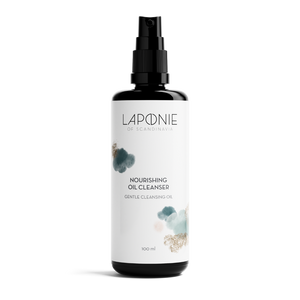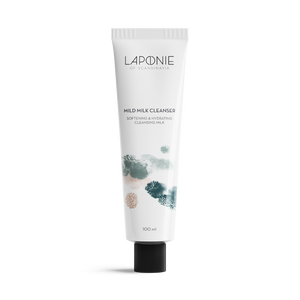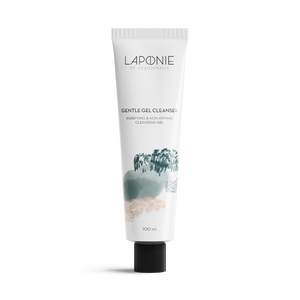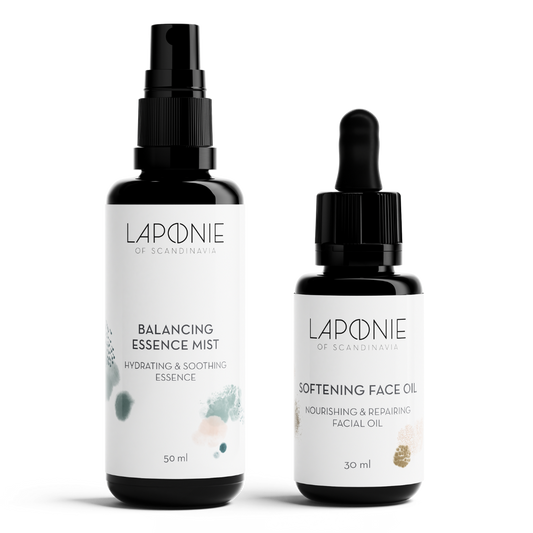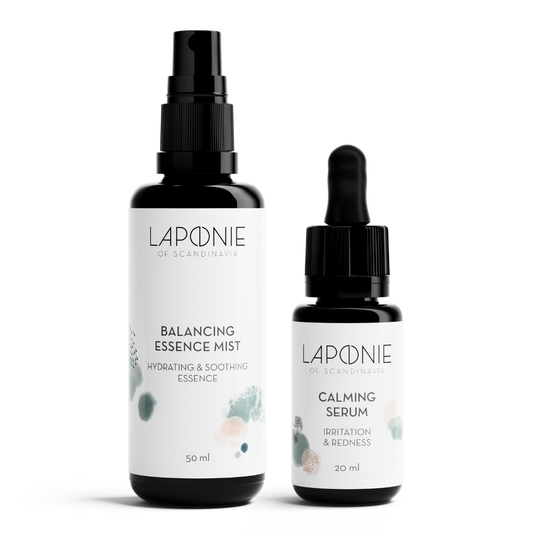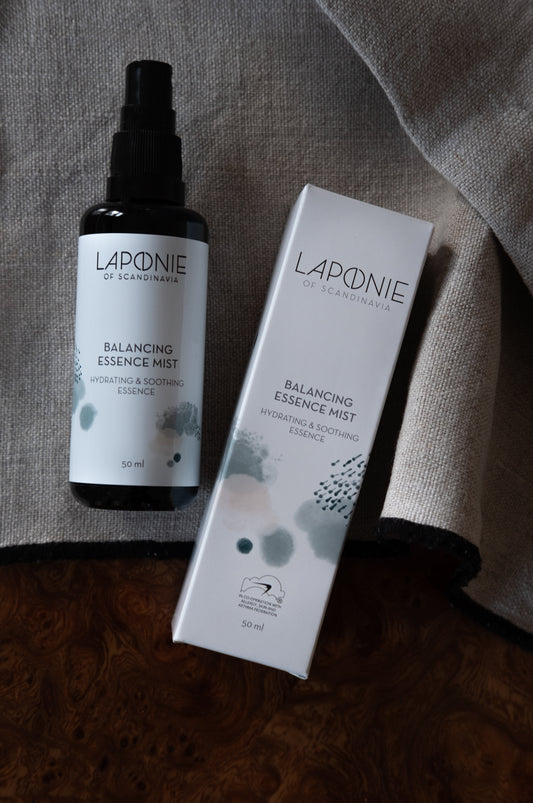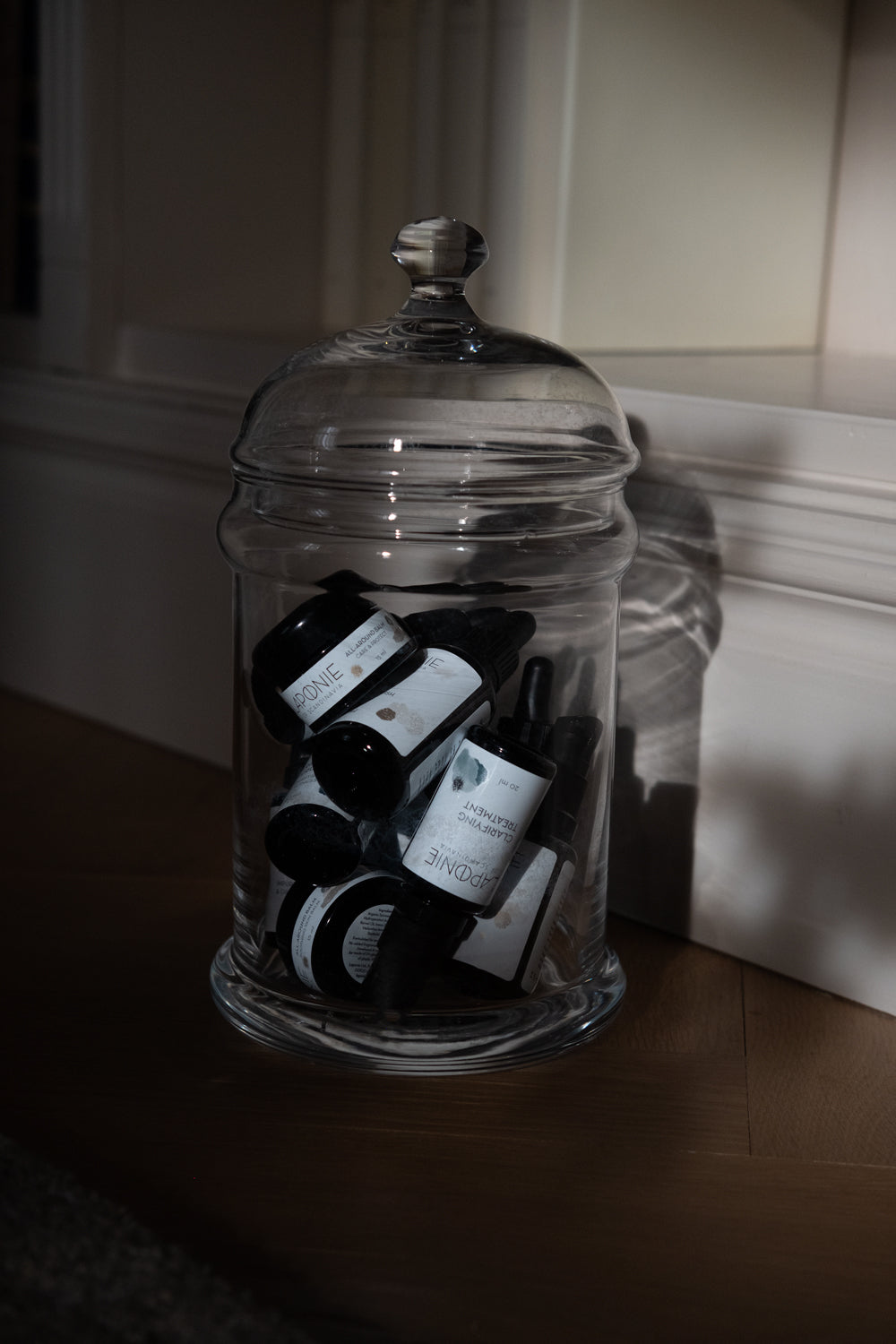1. Toners dry out your skin
Not true/partially true. It all depends on what goes into the toner. Back in the day, toners contained a lot of alcohol to cleanse skin, and was also used as a preservative and solvent. As alcohol, especially in large quantities, may dry skin out, the end product will also have had a drying effect. Today, there is a variety of toners, e.g., for soothing, purifying or exfoliating skin, but one key function is usually also to hydrate skin. For this reason, toners are often formulated with a high percentage of humectants which are cosmetics ingredients that bind hydration to skin in different ways. Today toners formulated to e.g., purify oily skin are created not to dehydrate skin. Skin in general does not benefit from a dry or dehydrated surface. For sensitive and reactive skin in particular skincare products containing alcohol are often too harsh.
2. Floral waters equal high-quality and ”waterfree” toners
Not true. Floral water is water as much as plain old water. The difference is that floral water contains (often rather small amounts) dissolved components of the plant from which it is produced. Floral water may naturally possess properties fo a certain plant, depending on what it’s produced from, but at the end of the day it’s still water.
Why do toners contain water at all, you might ask? Water is simply an excellent solvent for most skincare products. E.g., the above mentioned humectants, our hydrating ingredients, are water-soluble, and need water in order to dissolve in a product.
Plain old water is also a safe choice for sensitive and problem skin. Floral water may contain fragrance and other allergens, and a toner based on plain water may be a safer choice.
3. Your skincare routine must include a toner
Not true. In general, after a suitable cleanser, skin needs hydration and a care product to lock in said hydration (and proper sunscreen). A toner’s function may be to hydrate, and especially if you’re using pure oil as a part of your routine, it’s important to pair it with a hydrating product. For this, a hydrating toner is an excellent choice, but a good moisturiser or hydrating serum will also do the job. It’s really a question of preference and what suits your skin and your needs.
We often hear that a toner’s key function is to finalise skin cleansing. This is usually thought to mean that a toner will help skin regain its natural pH after cleansing or that wiping skin with a toner will take off any cleanser remnants. Luckily, healthy skin is able to correct its slightly acidic pH rather quickly entirely on its own. In addition, cleansers today are formulated with skin’s own pH in mind and are also effective enough on their own.
What we think of toners?
As sensitive- and problem-skinned, we swear by toners. Our Balancing Essence is a verstaile care product, that hydrates, soothes, balances and conditions skin, and is perfect for tackling sensitive and problem skin. E.g., surface dry skin will benefit from layering the Essence, to really amp up on hydration. The Essence is also a godsend for easily irritated skin that needs on-the-do calming care over makeup or during the day.
The key component in our Essence is ectoin – a do-it-all ingredient that offers long-term hydration paired with balancing, calming and conditioning properties. Ectoin is a small and powerful stress-protecting molecule, a so-called extremolyte. Extremolytes protect micro-organisms and plants living in harsh and extreme conditions, such as salt lakes, hot springs and deserts. Chemically speaking ectoin is a cyclic amino acid derivative.
The benefits of ectoin in skincare have been established in numerous in-vivo studies (i.e., studies conducted on human skin), and include long-term hydration, lessened skin roughness, skin barrier repair and anti-inflammatory and anti-irritant properties. We get our ectoin from a small German company, where it’s produced via biotechnological fermentation, from a non-GMO strain of the Halomonas elongata bacteria.
